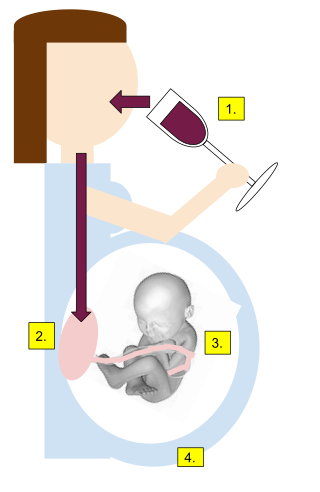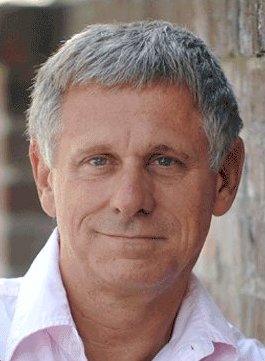Related Research Articles
Psychotherapy is the use of psychological methods, particularly when based on regular personal interaction, to help a person change behavior, increase happiness, and overcome problems. Psychotherapy aims to improve an individual's well-being and mental health, to resolve or mitigate troublesome behaviors, beliefs, compulsions, thoughts, or emotions, and to improve relationships and social skills. Numerous types of psychotherapy have been designed either for individual adults, families, or children and adolescents. Some types of psychotherapy are considered evidence-based for treating diagnosed mental disorders; other types have been criticized as pseudoscience.
Drug rehabilitation is the process of medical or psychotherapeutic treatment for dependency on psychoactive substances such as alcohol, prescription drugs, and street drugs such as cannabis, cocaine, heroin, and amphetamines. The general intent is to enable the patient to confront substance dependence, if present, and stop substance misuse to avoid the psychological, legal, financial, social, and medical consequences that can be caused.
The disease model of addiction describes an addiction as a disease with genetic, biological, neurological or environmental origin. The traditional medical model of disease requires only an abnormal condition causing distress, discomfort or dysfunction to an affected individual. The contemporary medical model partly attributes addiction to changes in the brain's mesolimbic pathway. The model also considers these diseases as a result of other biological, psychological or sociological entities, despite an incomplete understanding of their mechanisms. The common biomolecular mechanisms underlying addiction – CREB and ΔFosB – were reviewed by Eric J. Nestler in a 2013 review. Genetics and mental disorders may precipitate the severity of a drug addiction. It is estimated that 50% of healthy individuals developing an addiction can trace the cause to genetic factors.
Psychedelic therapy refers to the proposed use of psychedelic drugs, such as psilocybin, ayahuasca, LSD, psilocin, mescaline (peyote), DMT, 5-MeO-DMT, Ibogaine, MDMA, to treat mental disorders. As of 2021, psychedelic drugs are controlled substances in most countries and psychedelic therapy is not legally available outside clinical trials, with some exceptions.

Alcohol dependence is a previous psychiatric diagnosis in which an individual is physically or psychologically dependent upon alcohol.
Substance dependence, also known as drug dependence, is a biopsychological situation whereby an individual's functionality is dependent on the necessitated re-consumption of a psychoactive substance because of an adaptive state that has developed within the individual from psychoactive substance consumption that results in the experience of withdrawal and that necessitates the re-consumption of the drug. A drug addiction, a distinct concept from substance dependence, is defined as compulsive, out-of-control drug use, despite negative consequences. An addictive drug is a drug which is both rewarding and reinforcing. ΔFosB, a gene transcription factor, is now known to be a critical component and common factor in the development of virtually all forms of behavioral and drug addictions, but not dependence.
Gordon Alan Marlatt was a leading American-Canadian clinical psychologist in the field of addictive behaviors from the 1980s through the 2000s. He conducted pioneering research in harm reduction, brief interventions, and relapse prevention.
Addiction medicine is a medical subspecialty that deals with the diagnosis, prevention, evaluation, treatment, and recovery of persons with addiction, of those with substance-related and addictive disorders, and of people who show unhealthy use of substances including alcohol, nicotine, prescription medicine and other illicit and licit drugs. The medical subspecialty often crosses over into other areas, since various aspects of addiction fall within the fields of public health, psychology, social work, mental health counseling, psychiatry, and internal medicine, among others. Incorporated within the specialty are the processes of detoxification, rehabilitation, harm reduction, abstinence-based treatment, individual and group therapies, oversight of halfway houses, treatment of withdrawal-related symptoms, acute intervention, and long term therapies designed to reduce likelihood of relapse. Some specialists, primarily those who also have expertise in family medicine or internal medicine, also provide treatment for disease states commonly associated with substance use, such as hepatitis and HIV infection.
Drug addiction recovery groups are voluntary associations of people who share a common desire to overcome their drug addiction. Different groups use different methods, ranging from completely secular to explicitly spiritual. Some programs may advocate a reduction in the use of drugs rather than outright abstention. One survey of members found active involvement in any addiction recovery group correlates with higher chances of maintaining sobriety. Although there is not a difference in whether group or individual therapy is better for the patient, studies show that any therapy increases positive outcomes for patients with substance use disorders. The survey found group participation increased when the individual members' beliefs matched those of their primary support group. Analysis of the survey results found a significant positive correlation between the religiosity of members and their participation in twelve-step programs and to a lesser level in non-religious SMART Recovery groups, the correlation factor being three times smaller for SMART Recovery than for twelve-step addiction recovery groups. Religiosity was inversely related to participation in Secular Organizations for Sobriety.

Howard Christie Samuels is a licensed therapist who founded and was formerly the CEO of The Hills Treatment Center, a substance abuse treatment facility, in Los Angeles. He holds a Doctorate in Clinical Psychology and is a Marriage and Family Therapist, specializing in addiction. He is also a vocal opponent of the legalization of marijuana.

A psychoactive drug, mind-altering drug, or consciousness-altering drug is a chemical substance that changes brain function and results in alterations in perception, mood, consciousness, cognition, or behavior. The term psychotropic drug is often used interchangeably, while some sources present narrower definitions. These substances may be used medically; recreationally; to purposefully improve performance or alter consciousness; as entheogens for ritual, spiritual, or shamanic purposes; or for research, including psychedelic therapy. Physicians and other healthcare practitioners prescribe psychoactive drugs from several categories for therapeutic purposes. These include anesthetics, analgesics, anticonvulsant and antiparkinsonian drugs as well as medications used to treat neuropsychiatric disorders, such as antidepressants, anxiolytics, antipsychotics, and stimulants. Some psychoactive substances may be used in detoxification and rehabilitation programs for persons dependent on or addicted to other psychoactive drugs.
About 1 in 7 Americans reportedly suffered from active addiction to a particular substance. Addiction can cause physical, emotional and psychological harm to those affected by it. The American Society of Addiction Medicine defines addiction as "a treatable, chronic medical disease involving complex interactions among brain circuits, genetics, the environment, and an individual's life experiences. People with addiction use substances or engage in behaviors that become compulsive and often continue despite harmful consequences."
Euphoric recall is a cognitive bias that describes the tendency of people to remember past experiences in a positive light, while overlooking negative experiences associated with some event(s). Euphoric recall has primarily been cited as a factor in substance dependence. Individuals may become obsessed with recreating the remembered pleasures of the past, where positive expectancy of outcomes results in the belief that substance use can provide immediate relief.

Jeremy David Safran was a Canadian-born American clinical psychologist, psychoanalyst, lecturer, and psychotherapy researcher. He was a professor of psychology at the New School for Social Research, where he served for many years as director of clinical training. He was also a faculty member at New York University's postdoctoral program in psychoanalysis and The Stephen A. Mitchell Center for Relational Studies. He was co-founder and co-chair of The Sandor Ferenczi Center at the New School for Social Research. In addition he was past-president of The International Association for Relational Psychoanalysis and Psychotherapy.
Mark B. Sobell, Ph.D., ABPP, a professor at the College of Psychology of Nova Southeastern University in Fort Lauderdale, Florida, is a specialist in addiction. Dr. Mark Sobell is nationally and internationally known for his research in the addiction field. He is a Fellow of the American Psychological Association in Divisions 1, 3, 12, 25, 28, and 50, and is Board Certified in Cognitive and Behavioral Psychology by the American Board of Professional Psychology. He is the co-director of Healthy Lifestyles: Guided Self-Change at Nova Southeastern University.
Linda Carter Sobell, Ph.D., ABPP, is the President's Distinguished Professor at Nova Southeastern University (NSU) in Fort Lauderdale, Florida. She is a professor of clinical psychology, addiction specialist, co-director of NSU's Guided Self-Change clinic, a Motivational Interviewing Trainer, and is board-certified in cognitive and behavioral psychology.
Guided self-change (GSC) treatment has been accepted by American Psychological Association Division 12, Society of Clinical Psychology, as an empirically supported treatment.
Jalie A Tucker is a professor of Health Education and Behavior at the University of Florida. She is known for her research on impulsive and harmful behaviors, such as alcohol and substance use, the effect of the environment on addiction, and natural resolutions to risky behavior including alcohol misuse. She has received numerous awards for excellence in clinical psychology and addiction research, including the 2015 Award for Distinguished Scientific Contributions to Clinical Psychology from the Society of Clinical Psychology. She was honored by APA, Division 50 with the Presidential Award for Service to the Division in 2010 and 2012.
Katie Witkiewitz is an American psychologist, Distinguished Professor of Psychology at the University of New Mexico in Albuquerque, New Mexico, and Director of the Center on Alcoholism, Substance Abuse, & Addictions, and the Addictive Behaviors and Quantitative (ABQ) Research Lab.
Arnold M. Washton is an American psychologist, author, researcher, and educator working in the field of addiction psychology since 1975. He has written several textbooks for graduate students and practitioners, self-help manuals published by the Hazelden Foundation, and over 30 articles in professional refereed journals. His work has influenced national policy and the development of best practices in addiction treatment. He continues to provide professional training seminars approved by the American Psychological Association and sponsored by academic institutions, including the Graduate School of Applied and Professional Psychology at Rutgers University.
References
- ↑ The Center for Optimal Living, New York, New Tork, Retrieved 10 July 2015
- ↑ Harm Reduction Psychotherapy Certificate Program Archived 2015-06-29 at the Wayback Machine Retrieved 10 July 2015
- ↑ Tatarsky, A. (Ed.). (2007). Harm reduction psychotherapy: A new treatment for drug and alcohol problems. Jason Aronson.
- ↑ Andrew Tatarsky Website Archived 2015-07-08 at the Wayback Machine Retrieved 10 July 2015
- ↑ Andrew Tatarsky Website Archived 2015-07-08 at the Wayback Machine Retrieved 10 July 2015
- ↑ Tatarsky, A. (Ed.). (2007). Harm reduction psychotherapy: A new treatment for drug and alcohol problems. Jason Aronson.
- ↑ Tatarsky, A. & Marlatt, G.A. (2010). State of the Art in Harm Reduction Psychotherapy: An Emerging Treatment for Substance Misuse. Journal of Clinical Psychology: In Session, Vol. 66 (10), pp. 117-122.
- ↑ Division on Addiction of New York State Psychological Association Website Archived 2015-07-11 at the Wayback Machine Retrieved 10 July 2015
- ↑ Moderation Management Network, Inc. Website Archived 2015-07-11 at the Wayback Machine Retrieved 10 July 2015
- ↑ "New York State Office of Alcoholism & Substance Abuse Services, Addiction Services for Prevention, Treatment, Recovery: Clinical Guidance, October 2012" (PDF). Archived from the original (PDF) on 2015-09-22. Retrieved 2015-07-10.
- ↑ The Postdoctoral Program in Psychotherapy and Psychoanalysis Website Retrieved 10 July 2015